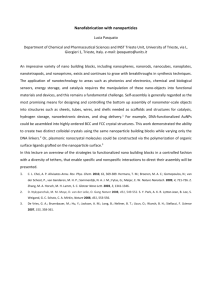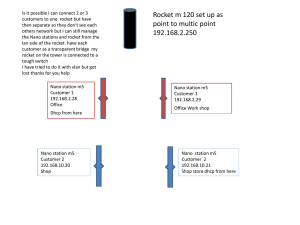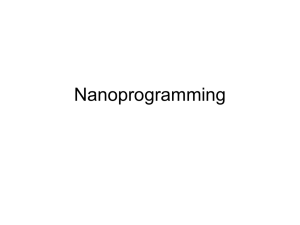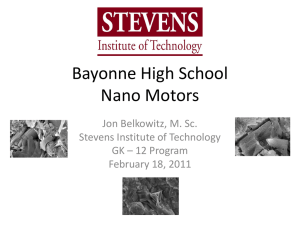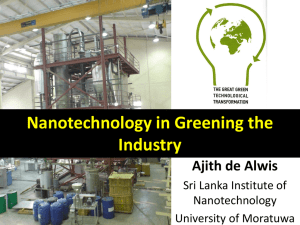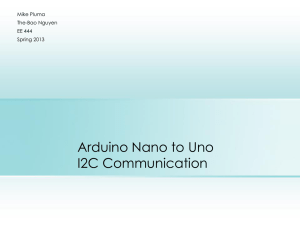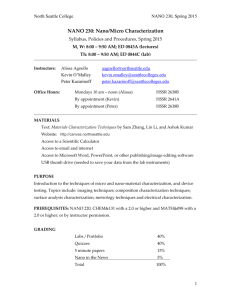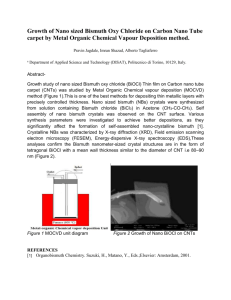AFM plough nano constrictions on YBCO thin films: Josephson effect
advertisement
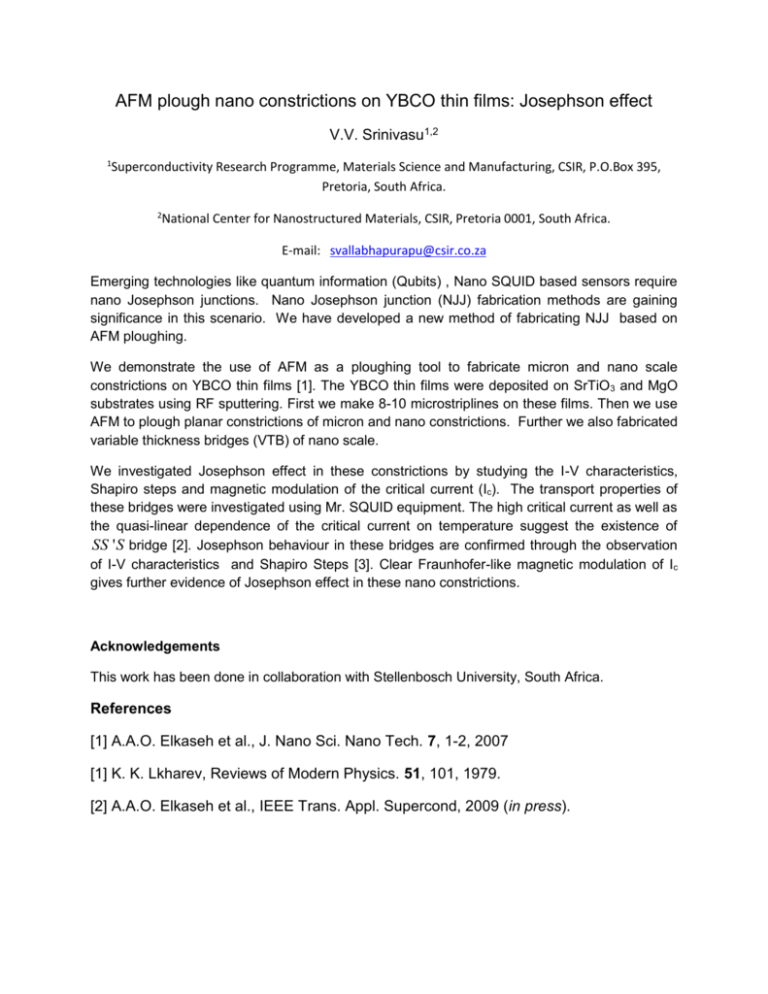
AFM plough nano constrictions on YBCO thin films: Josephson effect V.V. Srinivasu1,2 1 Superconductivity Research Programme, Materials Science and Manufacturing, CSIR, P.O.Box 395, Pretoria, South Africa. 2 National Center for Nanostructured Materials, CSIR, Pretoria 0001, South Africa. E-mail: svallabhapurapu@csir.co.za Emerging technologies like quantum information (Qubits) , Nano SQUID based sensors require nano Josephson junctions. Nano Josephson junction (NJJ) fabrication methods are gaining significance in this scenario. We have developed a new method of fabricating NJJ based on AFM ploughing. We demonstrate the use of AFM as a ploughing tool to fabricate micron and nano scale constrictions on YBCO thin films [1]. The YBCO thin films were deposited on SrTiO 3 and MgO substrates using RF sputtering. First we make 8-10 microstriplines on these films. Then we use AFM to plough planar constrictions of micron and nano constrictions. Further we also fabricated variable thickness bridges (VTB) of nano scale. We investigated Josephson effect in these constrictions by studying the I-V characteristics, Shapiro steps and magnetic modulation of the critical current (Ic). The transport properties of these bridges were investigated using Mr. SQUID equipment. The high critical current as well as the quasi-linear dependence of the critical current on temperature suggest the existence of SS ' S bridge [2]. Josephson behaviour in these bridges are confirmed through the observation of I-V characteristics and Shapiro Steps [3]. Clear Fraunhofer-like magnetic modulation of Ic gives further evidence of Josephson effect in these nano constrictions. Acknowledgements This work has been done in collaboration with Stellenbosch University, South Africa. References [1] A.A.O. Elkaseh et al., J. Nano Sci. Nano Tech. 7, 1-2, 2007 [1] K. K. Lkharev, Reviews of Modern Physics. 51, 101, 1979. [2] A.A.O. Elkaseh et al., IEEE Trans. Appl. Supercond, 2009 (in press). Acknowledgements: This work has been done in collaboration with Stellenbosch University, South Africa.
